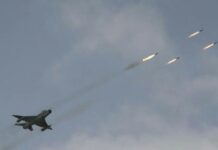Dhul-hijjah is the last month of the Islamic calendar. Like the Gregorian calendar, the Islamic one also consists of 12 months in a year. The glorious Qur’an mentioned four sacred months and Dhul-hijjah was included.
This month of Dhul-hijjah comes with blessed first ten days which started counting last Sunday, the 11th of July. What makes the days special are the quantum of blessings and being the most expensive period in the life of a Muslim.
For these reasons and many more, we are expected to intensify efforts in the worship of Allah SWA. Dedicate enough time and go the extra mile in righteousness. Embrace good deeds and execute beautiful acts of ibadah for the purposes of seeking the pleasure of Allah SWA.
There are three major forms of worship including animal sacrifice (Layya) or (Dhahiyyah) in this month of Dhul-hijjah.
Animal sacrifice is not compulsory to a Muslim but becomes obligatory to those who are financially capable. Every male or female Muslim who can afford to buy a prescribed animal for layya is compulsorily enjoined to observe this form of worship. However, there is a second opinion that subsists, according to some Ulamas.
The second position posited that animal sacrifice is an empathic sunnah of our own noble Prophet Muhammad (SAW) which is incumbent on those who have the means to buy an approved animal. It’s not made obligatory for any Muslim to uphold this sunnah by any possible means. There might be other explanations from the twofold. (See pamphlet authored by Mustapha Isa Qassim for details).
Anyway, regardless of how you look at it, animal sacrifice in Islam is a blessing to those who are wise.
Layya should attract every Muslim; married or bachelor and Spinster for the prompt subscription because of its great importance to our lives here and the hereafter.
Even at that, however, Islam didn’t encourage a Muslim to turn to a beggar in an effort to observe layya. Similarly, Islam disallowed sourcing for a loan or exert unnecessary pressure on relatives or friends, associates and bosses to raise money for layya. Again, it should be noted that begging is prohibited in Islam. We should appreciate the verse of the Holy Qur’an, “no soul is tasked beyond its ability.”
Equally, ostentatious living standards, selfishness and corruption are prohibited in Islam. Muslims are encouraged to pay charity and give support and assistance to the poor, the needy and those who are financially weak in any circumstance. Therefore, it’s desirable for the rich and those who are financially sound to give support in cash or kind, possibly the animal especially during the first ten special days of Dhul-hijjah to the less privileged and those who cannot afford to observe the animal sacrifice.
The benefit and significance of animal sacrifice in Islam are momentous. In view of time and space, only five are underlined for emphasis and guidance;
1. It’s a simplified form of worship to follow the paths of Prophets Ibrahim (AS) and Muhammad (SAW). This is a wish of every Muslim.
2. A Muslim who sacrifice an approved animal within the approval period will have multiple rewards. ” A Muslim who observed animal sacrifice would be given a reward equal to the strands of hair of the animal he or she has sacrificed.”
3. It draws a Muslim nearer to a fellow Muslim brother and sister by a bond of new friendship forged between them and building morality and trust in our lifestyle. These measures will strategically enhance the democratic spirit of Islam.
4. We will have an opportunity to provide for ourselves and our families, neighbours and many people in our community with a lot of meat to share on the day of Eid and throughout the celebrations period. This will bring about unity of purpose among members of the Community including the non-Muslims.
5. There is no better deed or any righteousness on the day of Sallah more than animal sacrifice.
The Prophet (SAW) said: “the son of Adam would not do any righteous deed on the Sallah day better (in rewards) than shedding of blood i.e animal sacrifice because the animal committed to the sacrifice would be raised on Judgement day with its full structure, and Allah SWA would elevate the position of the Muslim who made a sacrifice by the time he is slaughtering the animal and the blood drops to the ground.” (Ibn Majah & Tur Midhi).
It’s pertinent to note from the aforementioned tradition and the general rule of Islam that animals are slaughtered and not killed.
The killing of animals is exceptionally done under provisional conditions. There is no killing of animals for layya which provided sufficient methodologies for slaughtering and sharing.
According to Islamic law, all animals earmarked for human consumption must be slaughtered in the manner prescribed by law. Thus in a way and manner that the blood flows out.
The approved method of slaughter of an animal is by using a sharp object like knife etc to cut off the windpipe, esophagus and the two external jugular veins. There is a medical and an Islamic idea underlying this particular manner of slaughter. Therefore, should be adhered to strictly without hesitation for the good of our health and submission to Islamic dictates. (read more from the Book,’ The Religion of Islam’ by Maulana Muhammad Ali).
Again, it should be noted that, at the point of slaughter, it’s absolutely necessary the name of Allah SWA is invoked. The glorious Qur’an lays emphasis: “And eat not of that on which Allah’s name has not been mentioned, and that is surely a transgression.” (6:122).
For further guidance and research, types of animals prescribed for layya are mentioned below:
Ram, sheep, goat, she-goat, cows including female cow, male camel and she-camel based on their ages, health conditions and deficiencies.
Allah SWA knows better. Wallahu a’alaam. Allahu a’alam.
May Allah SWA continue to guide us to the right paths. Allahumma Ameen!
Salihu Yakudima, a journalist and public commentator, writes from Abuja.
Follow the Neptune Prime channel on WhatsApp:
Do you have breaking news, interview request, opinion, suggestion, or want your event covered? Email us at neptuneprime2233@gmail.com





